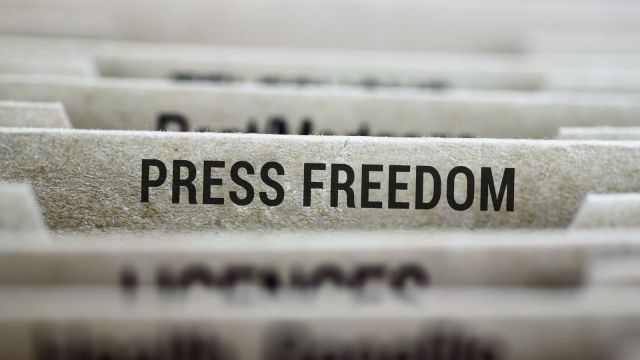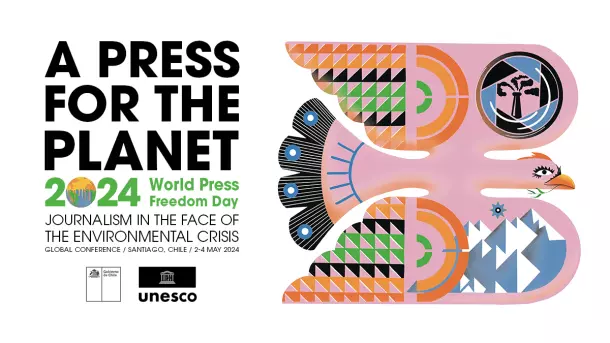World Press Freedom Day 2024: Know the date, theme, origin, and significance
Annually observed every year on May 3, this year, in 2024, here is all you need to know about the World Press Freedom Day 2024.
 Annually observed every year on May 3, this year, in 2024, here is all you need to know about the World Press Freedom Day 2024. (Canva)
Annually observed every year on May 3, this year, in 2024, here is all you need to know about the World Press Freedom Day 2024. (Canva)World Press Freedom Day, observed annually on May 3rd, is a pivotal occasion to honour and uphold the fundamental principles of press freedom and serves as a global platform to assess the state of it worldwide, examine the progress made in ensuring the independence of the media and the protection of human rights, and recognise the sacrifices made by journalists who have tragically lost their lives while fulfilling their duty to inform and enlighten the public.
It is a call to action to advocate for the independence of the media and the protection of journalists. It recognises the vital role that a free and independent press plays in upholding the public’s right to information and holding those in power accountable.
This year, the Government of Chile and UNESCO will host the 31st World Press Freedom Day Conference in Santiago, providing a global platform for discussions, debates, and the exchange of ideas on the state of press freedom around the world and strengthening its foundation. Here is all you need to know.
Press Freedom Day 2024: Date and Theme
Annually observed every year on May 3, this year, in 2024, World Press Freedom Day will be falling on a Friday, with the theme for 2024 being “A Press for the Planet: Journalism in the Face of the Environmental Crisis.”
 The Theme of World Press Freedom Day 2024 is “A Press for the Planet: Journalism in the Face of the Environmental Crisis”. (UNESCO/Huaui Roa)
The Theme of World Press Freedom Day 2024 is “A Press for the Planet: Journalism in the Face of the Environmental Crisis”. (UNESCO/Huaui Roa)
It will be dedicated to emphasising the crucial role of journalism and freedom of expression in the context of the current global environmental crisis, thereby highlighting the importance of a free and independent press in informing the public, holding decision-makers accountable, and driving meaningful action on pressing environmental issues.
Protecting those who protect our planet!
Tune in to @UNESCO‘s #WorldPressFreedomDay Conference in #Chile, highlighting the threats faced by environmental journalists.
Let’s unite to safeguard #PressFreedom and environmental voices worldwide!https://t.co/3s6SPwHPE8 pic.twitter.com/O1imbTZVJu
— UNESCO 🏛️ #Education #Sciences #Culture 🇺🇳 (@UNESCO) May 2, 2024
https://platform.twitter.com/widgets.js
Press Freedom Day 2024: Origin and Significance
World Press Freedom Day was first proclaimed by the United Nations General Assembly in December 1993, following a recommendation from UNESCO’s General Conference. This milestone marked the beginning of an annual celebration on May 3, the anniversary of the Declaration of Windhoek, which has since become a global observance of press freedom.
Thirty years later, the connection between the freedom to seek, impart, and receive information and the public good remains as pertinent as it was at the time of its inception. To commemorate this milestone, special events are planned during the World Press Freedom Day Conference, highlighting the enduring importance of this fundamental right.
The significance of World Press Freedom Day is to mark and highlight the importance of press freedom, ensuring public access to information and government respect for freedom of expression. It raises awareness of challenges like threats, violence, and censorship faced by journalists globally.
The day acknowledges journalists’ contributions, advocates for press freedom, emphasises government responsibility for a supportive media environment, and protects media independence, all while promoting public access to information and freedom of expression.
- 01
- 02
- 03
- 04
- 05































